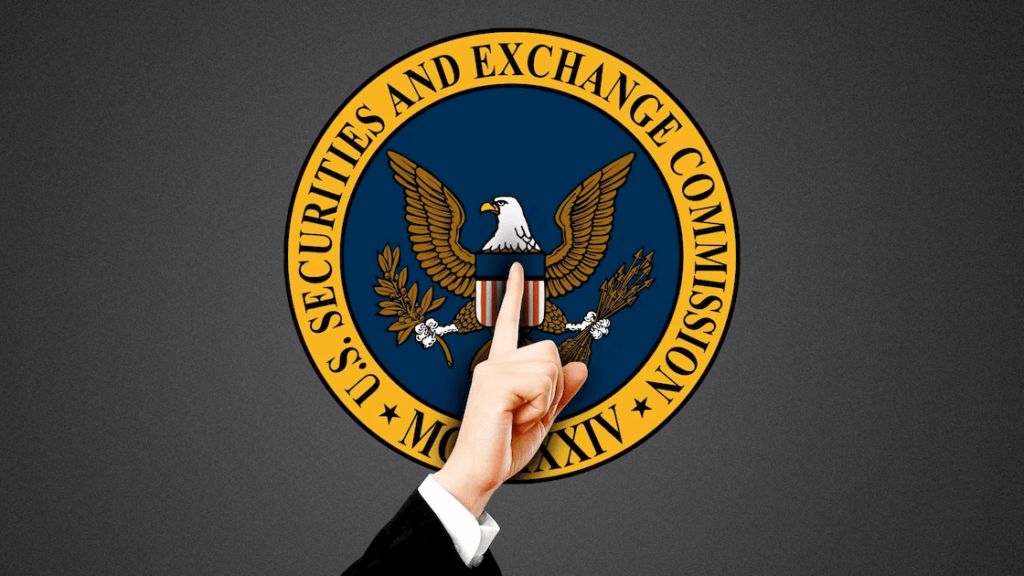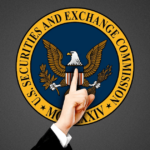In a move igniting controversy within both the U.S. Securities and Exchange Commission (SEC) and the vast digital asset community, the SEC has issued a formal order against Flyfish Club, LLC for the unregistered sale of non-fungible tokens (NFTs). This regulatory action, based on the assertion that Flyfish’s NFTs qualify as securities under U.S. law, has underscored a growing divide within the agency itself about how NFTs and other digital assets should be regulated.
Flyfish Club’s NFT Sale: A Legal Challenge
Flyfish Club, a New York-based company, raised approximately $14.8 million between August 2021 and May 2022 by selling 1,600 NFTs. These tokens were marketed as exclusive memberships granting access to a high-end dining club, with additional opportunities for holders to potentially profit from the resale or leasing of their tokens.
The SEC argues that these NFTs, based on their potential resale value and passive income generation, qualify as securities under the Howey Test, which determines what constitutes an investment contract. As a result, the SEC claims Flyfish violated Sections 5(a) and 5(c) of the Securities Act of 1933 by failing to register these tokens as securities before their sale. The order mandates Flyfish to cease further violations, pay $750,000 in penalties, and destroy all NFTs still in its possession.
A Divided SEC: Dissent from Within
Interestingly, not all SEC commissioners agree with this strict interpretation. Commissioners Hester Peirce and Mark T. Uyeda openly criticized the decision, arguing that Flyfish NFTs functioned more as utility tokens than as speculative securities. They emphasized that the tokens were primarily meant to provide access to exclusive dining experiences, not as vehicles for financial speculation.
Peirce and Uyeda’s dissent also highlighted the SEC’s reliance on the Howey Test as problematic, asserting that it is overly broad when applied to innovative digital assets like NFTs. They stressed that NFTs, especially those offering tangible benefits like Flyfish’s memberships, should not be lumped in with traditional investment contracts simply because they can be resold.
The commissioners further argued that the SEC’s intervention could have unintended consequences for NFT holders, complicating their ability to transfer or sell their memberships. They also called for clearer regulatory guidance that would allow creators and businesses to innovate with NFTs without the fear of regulatory backlash.
Implications for the NFT Space
The SEC’s action against Flyfish is just one of several recent enforcement actions targeting NFTs and digital asset platforms. OpenSea, a major NFT marketplace, also faces potential legal action after receiving a Wells Notice from the SEC. Meanwhile, crypto platforms like Coinbase, Kraken, and Uniswap have also found themselves under increased scrutiny.
The SEC’s aggressive stance, particularly under the leadership of Chair Gary Gensler, has drawn criticism from industry stakeholders and lawmakers alike. An upcoming congressional hearing titled “Dazed and Confused: Breaking Down the SEC’s Politicized Approach to Digital Assets” is expected to shed light on the agency’s approach, with testimony from former SEC officials and industry leaders.
The Future of NFTs in the U.S.
The Flyfish Club case highlights the need for clearer, more nuanced regulations surrounding NFTs and digital assets. While NFTs offer creators new ways to monetize their work and provide unique experiences, the SEC’s approach risks stifling innovation by subjecting them to the same regulatory scrutiny as traditional financial securities.
As NFTs continue to gain mainstream popularity, the regulatory landscape will play a crucial role in shaping the future of this burgeoning industry. The question remains whether the SEC will adopt a more flexible framework for digital assets or continue to apply traditional securities law in a way that could hinder innovation.
For now, the case against Flyfish Club serves as a stark reminder of the regulatory challenges facing NFT creators, platforms, and holders in the U.S.
QUEEN WHALE
Views: 1




